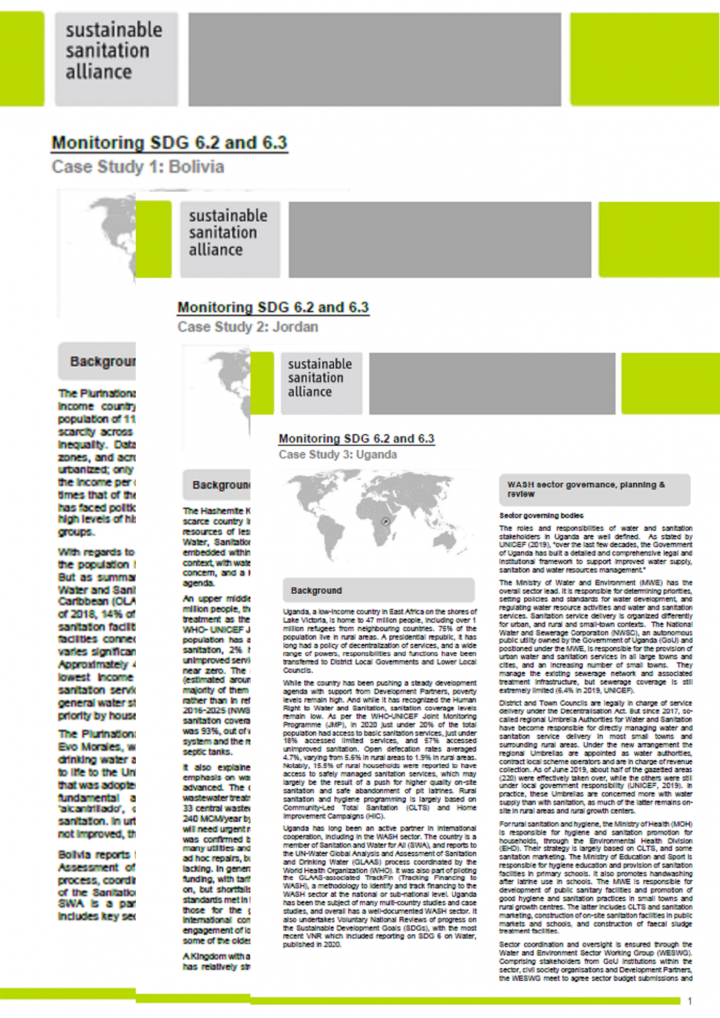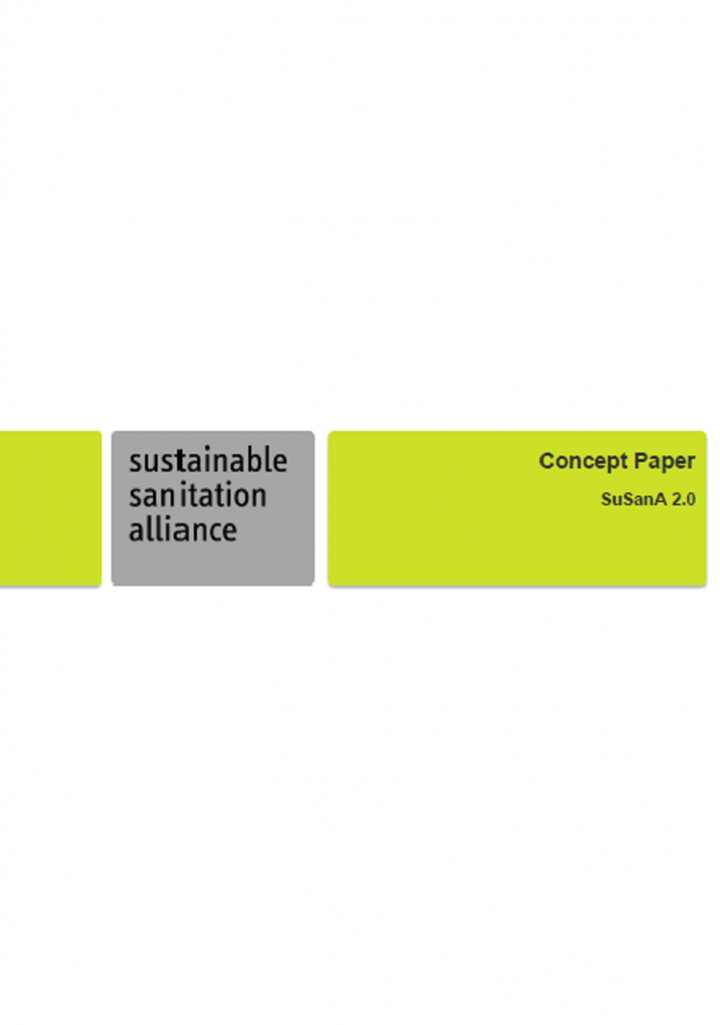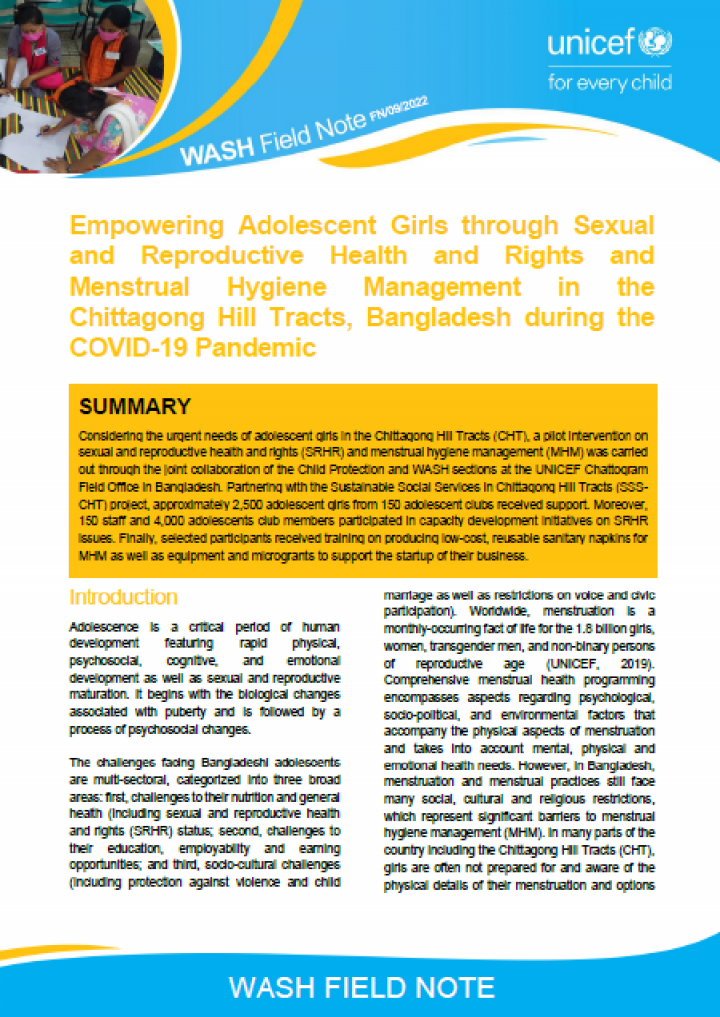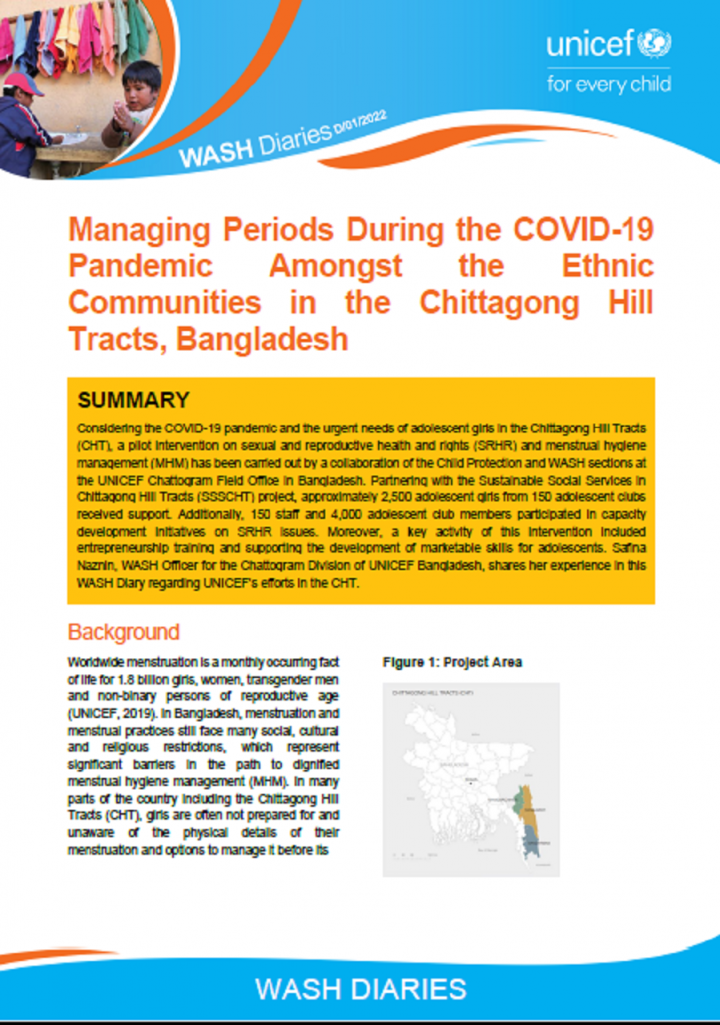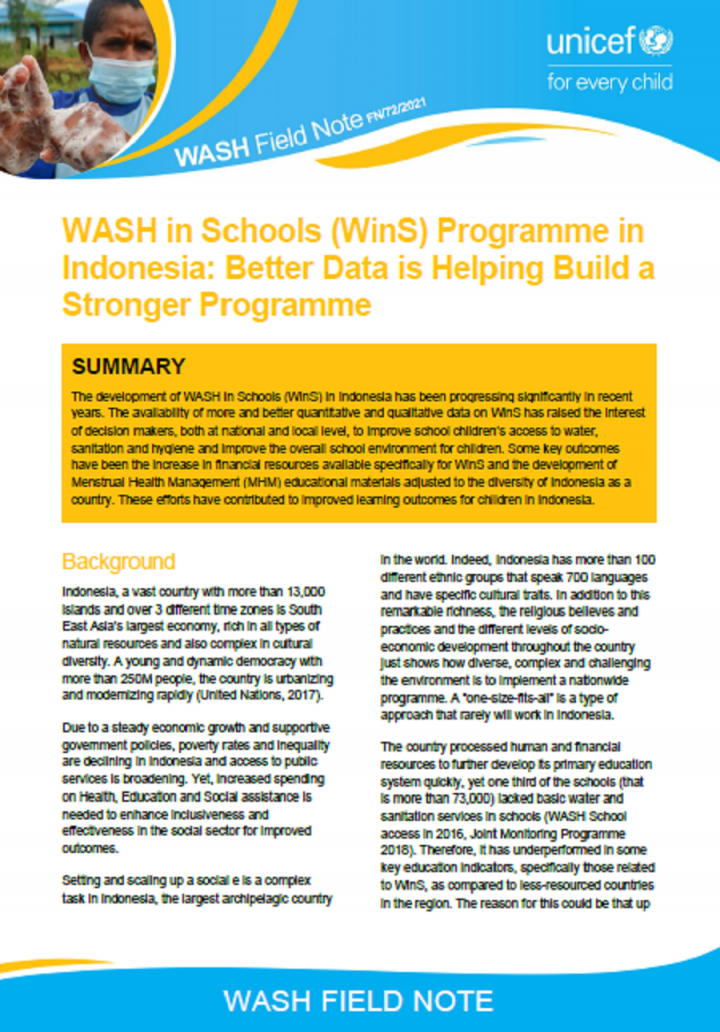C. van der Voorden (2022) Monitoring SDG targets 6.2 and 6.3 in Bolivia, Jordan and Uganda - brief case studies
In line with the expression ‘you manage what you measure’, high quality and regular monitoring is key for the successful achievement of SDG targets 6.2 and 6.3. SuSanA’s Vision Document states the intention to further its work to meet the increasing need for technical assistance in developing methodologies, designing monitoring structures compatible with existing technical and institutional capacities, and in implementing monitoring processes. As a […]
GIZ_ProSecEau (2021) Manual Akasuga Agroecological Latrine
The Akasuga technology is a low-cost agroecological latrine which has been developed and implemented by the GIZ Water and Sanitation Programme in Burundi (ProSecEau) in cooperation with the respective directions of the Ministry of Health and Ministry of Hydraulics responsible of Sanitation. ProSecEau has also developed in December 2021 an e-training (in English and French) on the Atingi.org platform. The e-training is a “training of […]
CMTF (2022) Concept Paper SuSanA 2.0
Since its foundation in 2007, SuSanA has grown to become a very large, and at times influential, network of organisations and individuals on sustainable sanitation. Its growth has contributed to challenges related to its model of structure, governance and operations, and the Bill and Melinda Gates Foundation commissioned a consultancy in 2018 to consider how SuSanA could re-shape for a new era in its development. […]
S. Naznin, F. J. Deepa (2022) Empowering Adolescent Girls through Sexual and Reproductive Health and Rights and Menstrual Hygiene Management in the Chittagong Hill Tracts, Bangladesh during the COVID-19 Pandemic
Considering the urgent needs of adolescent girls in the Chittagong Hill Tracts (CHT), a pilot intervention on sexual and reproductive health and rights (SRHR) and menstrual hygiene management (MHM) was carried out through the joint collaboration of the Child Protection and WASH sections at the UNICEF Chattogram Field Office in Bangladesh. Partnering with the Sustainable Social Services in Chittagong Hill Tracts (SSSCHT) project, approximately 2,500 […]
UNICEF (2022) Managing Periods During the COVID-19 Pandemic Amongst the Ethnic Communities in the Chittagong Hill Tracts, Bangladesh
Considering the COVID-19 pandemic and the urgent needs of adolescent girls in the Chittagong Hill Tracts (CHT), a pilot intervention on sexual and reproductive health and rights (SRHR) and menstrual hygiene management (MHM) has been carried out by a collaboration of the Child Protection and WASH sections at the UNICEF Chattogram Field Office in Bangladesh. Partnering with the Sustainable Social Services in Chittagong Hill Tracts […]
N. Klaesener-Metzner, P. van Maanen, S. Cavill (2022) The Status of Hand Hygiene Facilities in Public Spaces in South Asia
Access to adequate hand hygiene facilities (HHFs), including a reliable supply of water and soap, is paramount to ensure that daily hand hygiene can be practiced in public places. With COVID-19, public spaces have become an important location for the water, sanitation, and hygiene (WASH) sector to engage in when it comes to key moments for hand hygiene. However, the nature of public places means that clear ownership for […]
R. Hendrawan, A. Thomas, I. Amongin, S. Gaya, J. Figueras (2022) WASH in Schools (WinS) Programme in Indonesia Better Data is Helping Build a Stronger Programme
The development of WASH in Schools (WinS) in Indonesia has been progressing significantly in recent years. The availability of more and better quantitative and qualitative data on WinS has raised the interest of decision makers, both at national and local level, to improve school children’s access to water, sanitation and hygiene and improve the overall school environment for children. Some key outcomes have been the […]
UNICEF, nielsen (2020) Market assessment for safely managed sanitation in Indonesia
Realizing its commitment to providing universal access to sanitation, the Government of Indonesia aims to shift from open defecation free into safely managed sanitation as the national plan for sanitation is targeting to provide 15% of the population with access to safely managed sanitation. Based on the Statistics Bureau, in 2019, there are 77.44% households that have access to sanitation in Indonesia with 7.5% of […]
IOD PARC (2022) Manufacturing and distributing ceramic filters for use in emergencies: An example from Viet Nam
In rural Viet Nam, 20 per cent of the population still do not have access to basic drinking water services, leading to leaving children vulnerable to diarrhoea, dysentery, typhoid and other water-borne diseases. Following Cambodia’s example, Viet Nam has invested in the production and distribution of ceramic filters to address the issue of water access, particularly in the rural areas. Led by the Ministry of […]
R. Hendrawan (2022) Transformative Progress on Water, Sanitation and Hygiene in Schools Programme in Indonesia
Since 2016, significant progress has been made in ensuring Water Sanitation and Hygiene services (WinS) in Indonesia. The Ministry of Education (MoEC) published a WinS SDG profile and WinS Roadmap in 2017. The WinS SDG profile set the baseline for some of the indicators of SDG target 4.a.1: proportion of school with access to: (e) basic drinking water; (f) single-sex basic sanitation facilities; and (g) […]
IOD PARC (2022) Building Professionalism in Disaster Management: Standardizing and Certifying Disaster Management Expertise in ASEAN
This flagship case of the ASCEND initiative is a government-led initiative on a regional standardization/ certification process for WASH in Emergencies (WiE) related trainings amongst member states of the Association of Southeast Asian Nations (ASEAN) with support from the Development Partners including UNICEF. The initiative is an effort to ensure a universally accepted competency standards, certification and a mechanism to facilitate the movement and mobilization […]
J. Ward, E. Rand (UNICEF Vanuatu) (2022) Building Capacity for Quality WASH in Schools Construction in Vanuatu
On 7 April 2020, Tropical Cyclone (TC) Harold caused major infrastructure damage to 43% (128/298) of schools and 47% (164/349) of ECCE (early childhood care and education) centres in Vanuatu’s Sanma, Malampa and Penama provinces1. Pentecost, in Penama province, was among the hardest hit with all of the 23 schools in central and southern zones reported as majorly damaged. Along with efforts to rehabilitate school WASH infrastructure to ensure […]
J. M. Villaseñor, L. Maule, I. Amongin, S. Gaya, J. Figueras (2022) WASH FIELD NOTE WASH in Schools (WinS) Programme in the Philippines: Better Alignment of Policy and Management Changed the WinS Landscape.
A very centralized Department of Education (DepED) in the Philippines adopted a decentralized approach by giving all the responsibilities to school principals to adjust the school’s needs and implement a phased approach of the WASH in Schools programme. Since Typhoon Haiyan’s emergency response, addressing water, sanitation and hygiene (WASH) needs has become a priority for the Education Officials at division, province and national levels. The […]
M. Listyasari (UNICEF Idonesia) (2022) Mobilizing Domestic Revenue to Increase Safely Managed Sanitation in Indonesia
A preliminary assessment was conducted to assess the need of governments to provide sustainable financing for safely managed sanitation in order to achieve the Sustainable Development Goals (SDGs) in line with the new National Medium-Term Development Plan (Rencana Pembangunan Jangka Menengah Nasional, the RPJMN) 2020-2024. The assessment started by identifying various funding options from a range of countries and assessing their transferability to Indonesia according […]
M. A. Kurniawan (2022) Understanding Open Defecation Practices in Rural Aceh, Indonesia
Through Community Based Total Sanitation (known in Bahasa as Sanitasi Total Berbasis Masyaralat or STBM), many rural communities in Aceh province in Indonesia have been supported to eliminate Open Defecation (OD). However, achieving Open Defecation Free (ODF) still remains a challenge for many residents. This technical paper presents the results of a study on open defecation practices in rural Aceh that was hit by a […]
H. Berhe (UNICEF Eritrea) (2022) Real-time Monitoring of Handwashing Facilities in Myanmar
The COVID-19 pandemic has forced the restriction of movement and closure of borders in many locations in Myanmar. This coupled with lack of access and mobility to certain areas for security reasons posed challenges to monitor handwashing interventions. In response, UNICEF developed a real time remote monitoring tool for handwashing facility distribution and installation using RapidPro, a free, open source software that allows users to […]
J. Ward, E. Rand (UNICEF Vanuatu) (2022) Innovative Use of Social Media Taking WASH in Schools to Scale in Vanuatu
Social media has become a surprisingly useful and effective tool in advancing Vanuatu’s national WASH in Schools (WinS) program. In late 2019, Vanuatu’s Ministry of Education and Training (MoET) created the WASH in Schools Vanuatu - WOSH insaet long ol Skul Vanuatu Facebook group as a tool for schools to showcase their WASH activities. With increasing access to low-cost or free Facebook data and internet […]
S. Soeters, P. Mukheibir, J. Willetts (2021) Tecnologias de tratamento na prática
O funcionamento das estações de lodo fecal e de tratamento de águas residuais raramente é desenvolvido como descrito em manual ou livro didático. No entanto, pouco foi documentado sobre os desafios práticos da vida real dos envolvidos. Essa lacuna limita a capacidade dos planejadores e tomadores de decisão de tomar as decisões de investimento certas. Essa coleção de estudos de caso torna acessível as experiências e realidades enfrentadas pelas pessoas […]
S. Soeters, P. Mukheibir, and J. Willetts (2021) Tecnologías de tratamiento en la práctica
La operación de las plantas de tratamiento de lodos fecales y aguas residuales rara vez se desarrolla como se describe en un manual o libro de texto. Sin embargo, poco se ha documentado sobre los desafíos prácticos de la vida real involucrados. Esta brecha limita la capacidad de los planificadores y tomadores de decisiones para tomar las decisiones de inversión correctas. Esta recopilación de casos prácticos hace accesibles las […]
UNICEF (2022) Integrating Sanitation and Hygiene to Support Polio Eradication in Afghanistan’s Slums
Improvements to sanitation and hygiene are known to reduce the transmission of the poliovirus. This field note reports the experience of implementing Afghan Context Community Led Total Sanitation (AC-CLTS) in an urban context within an integrated polio eradication project targeted to high-risk polio districts. The Ministry of Public Health, provincial Department of Public Health and UNICEF implemented an urban variant of AC-CLTS in two slums […]
